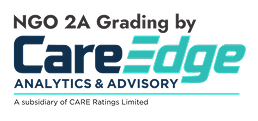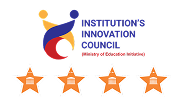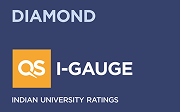

You may interested in
Past Events
-
Sustainable Tourism Model...
Ganpat University proudly announces the next session of the Internati...
-
Application of Artificial...
International Expert Lecture Series | GUNI–CMSR Ganpat Universi...
-
One Day Workshop on "How...
One Day Workshop on "How to Make CV Attractive?"
Diagnostic Service Management

Description
Two Days Workshop on Diagnostic Service Management
As part of Ganpat University - CMSR's Industry Interface Lecture Series, a comprehensive two-day workshop titled "Diagnostic Services Management" was held on October 3rd and 4th, 2024. The workshop was conducted by Mr. Manish Hattimare, Senior Manager of the Diagnostic Department at Shalby Hospital and co-ordinated by Dr. Deepika Oberoi. This initiative aimed to provide students with in-depth knowledge of the critical aspects of diagnostic services, their management, and the innovations shaping the healthcare landscape.
Objectives of the Workshop
The primary aims of the workshop were:
- To familiarize students with the operational management of diagnostic services in healthcare institutions.
- To introduce the latest technological advancements in the field of diagnostics.
- To discuss the challenges and opportunities in streamlining diagnostic operations for enhanced patient care and service efficiency.
- To bridge the gap between theoretical knowledge and practical industry insights.
Workshop Details:
- Dates: October 3rd and 4th, 2024
- Venue: Ganpat University - CMSR
- Time: 8:30 AM – 10:30 AM
- Trainer: Mr. Manish Hattimare, Senior Manager, Diagnostic Department, Shalby Hospital.
Workshop Structure and Key Sessions:
Day 1: October 3rd, 2024
- Session 1 (8:30 AM – 9:30 AM): Introduction to Diagnostic Services Management
- Mr. Hattimare began with an overview of the diagnostic services landscape, emphasizing its role in supporting accurate and timely medical treatment.
- Key aspects of diagnostic service operations were outlined, including workflow management and the integration of diagnostic services into the broader healthcare system.
- Session 2 (9:30 AM – 10:30 AM): Technological Advancements in Diagnostics
- A detailed exploration of the latest technological innovations, such as AI-driven imaging systems, automated laboratory processes, and tele-diagnostics.
- Mr. Hattimare demonstrated how these advancements improve accuracy and reduce diagnostic timelines, thereby enhancing patient care.
Day 2: October 4th, 2024
- Session 1 (8:30 AM – 9:30 AM): Operational Challenges and Solutions
- The second day opened with a focus on common challenges faced in managing diagnostic services, including resource allocation, maintaining accuracy under high demand, and adhering to strict regulatory requirements.
- Mr. Hattimare shared practical solutions and strategies to overcome these challenges, with case studies illustrating successful implementations.
- Session 2 (9:30 AM – 10:30 AM): Opportunities for Streamlined Operations
- Discussion on optimizing operations to boost productivity and patient satisfaction.
- Insights into adopting a patient-centric approach in diagnostics to improve service quality.
- Tips for leveraging data analytics and process automation to enhance workflow efficiency.
Key Outcomes:
- Skill Development: Participants reported a marked improvement in their understanding and approach to solving aptitude-based problems.
- Confidence Building: The intensive practice sessions and interactive discussions helped build confidence among students in handling complex questions.
- Feedback and Customization: Mr. Rahul Patira provided personalized feedback and strategies tailored to students' needs, enhancing their learning experience.
Feedback and Testimonials:
Enhanced Knowledge: Students gained a deeper understanding of the significance and complexities involved in managing diagnostic services.
Insight into Technology: The sessions shed light on cutting-edge diagnostic technologies and their practical applications, preparing students for future roles in the healthcare sector.
Problem-Solving Approaches: The workshop emphasized solutions-oriented thinking, equipping students with strategies to tackle operational challenges.
Industry-Relevant Learning: Direct insights from an experienced professional bridged the gap between academic concepts and real-world practices.







